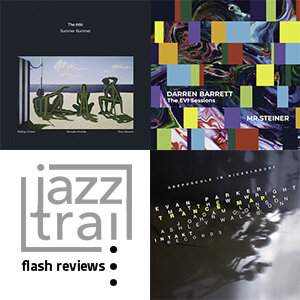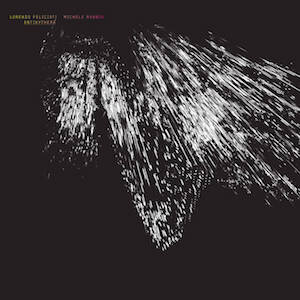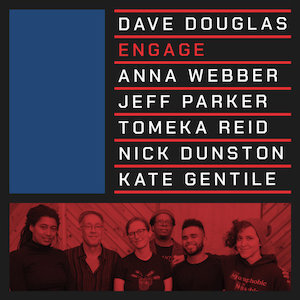Label: Savant, 2020
Personnel - Jim Snidero: alto saxophone; Dave Douglas: trumpet; Orrin Evans: piano; Do Yeon Kim: gayageum; Linda May Han Oh: bass; Rudy Royston: drums.
Everyone knows how hard American saxophonist Jim Snidero can push his music into pleasant hard-bop and post-bop territory. As a disciple of tradition, he is a musician of reference for many others, a truly inspiration on how to play jazz passionately and structurally. However, his new outing on the Savant imprint, Project-K, breaks preconceptions, presenting a totally new facet in the way he composes and arranges. Inspired by the culture, philosophy and history of South Korea, this new music adds an unprecedented contemporary vibe to his music, capable of surprising and enchanting. The stellar sextet behind the achievement includes the resourceful trumpeter Dave Douglas, The Bad Plus’ pianist Orrin Evans, solid bassist Linda May Han Oh, and highly-sensitive drummer Rudy Royston. Rounding out the group is Korean gayageum player Do Yeon Kim, who assists in providing a strong exotic touch to a few tunes. Gayageum is a Korean traditional stringed instrument that sounds like a zither.
On the opening track, “Han”, he seems to tip his hat to Wayne Shorter and his “Footprints”, coloring the bright melodic paths with some cool rhythmic ideas. His porous tones contrast with those of the muted trumpet played by Douglas, and it’s Evans who concludes the section meant for improvisation. The pianist grooves with elasticity as the horn section adorns with terse, spiky rhythmic accents.
“DMZ” (referencing the Korean Demilitarized Zone) is my favorite tune on the record. It starts audaciously with eery gayageun percussive sounds - sweeps, crawls, and some metallic disturbance - and ends vibrantly stately with the collective sounding as compact as a big band. Two types of grooves flutter below the surface, one from the theme statement and another to underpin the solos. A peak moment is achieved when the smoking-hot frontline exchanges thoughts with zest.
Despite of its possibly misleading title, “Jeju” has nothing in common with Shorter’s “Juju”, apart from the 3/4 tempo. It’s rather a sonic depiction of the Korean Jeju Island. With a relaxed posture, it sounds very folksy due to the strong melodic presence of the gayageum. Also a waltz, but played at a faster tempo, “Jenga” is a jazzy reading of a pop hit by Korean singer Heize. By the end, one can enjoy eight-bar tradeoffs between the drummer and the soloists.
The commutative phrases between sax and trumpet on “Seoulful” complement the main theme. They feel like symmetric ideas rebounding in tandem. After a swinging original titled “Goofy”, a path travelled by the bandleader so many times before, the CD ends with the tranquil repose of the Korean folk song “Han O Bak Nyun”.
Bristling with jazz brio and Korean traditions, Project-K seamlessly connects two different worlds into a coherent whole. This is a wide, pivotal step in Snidero’s efforts to give his career a new direction.
Grade A-
Favorite Tracks:
01 - Han ► 02 - DMZ ► 06 - Seoulful














































